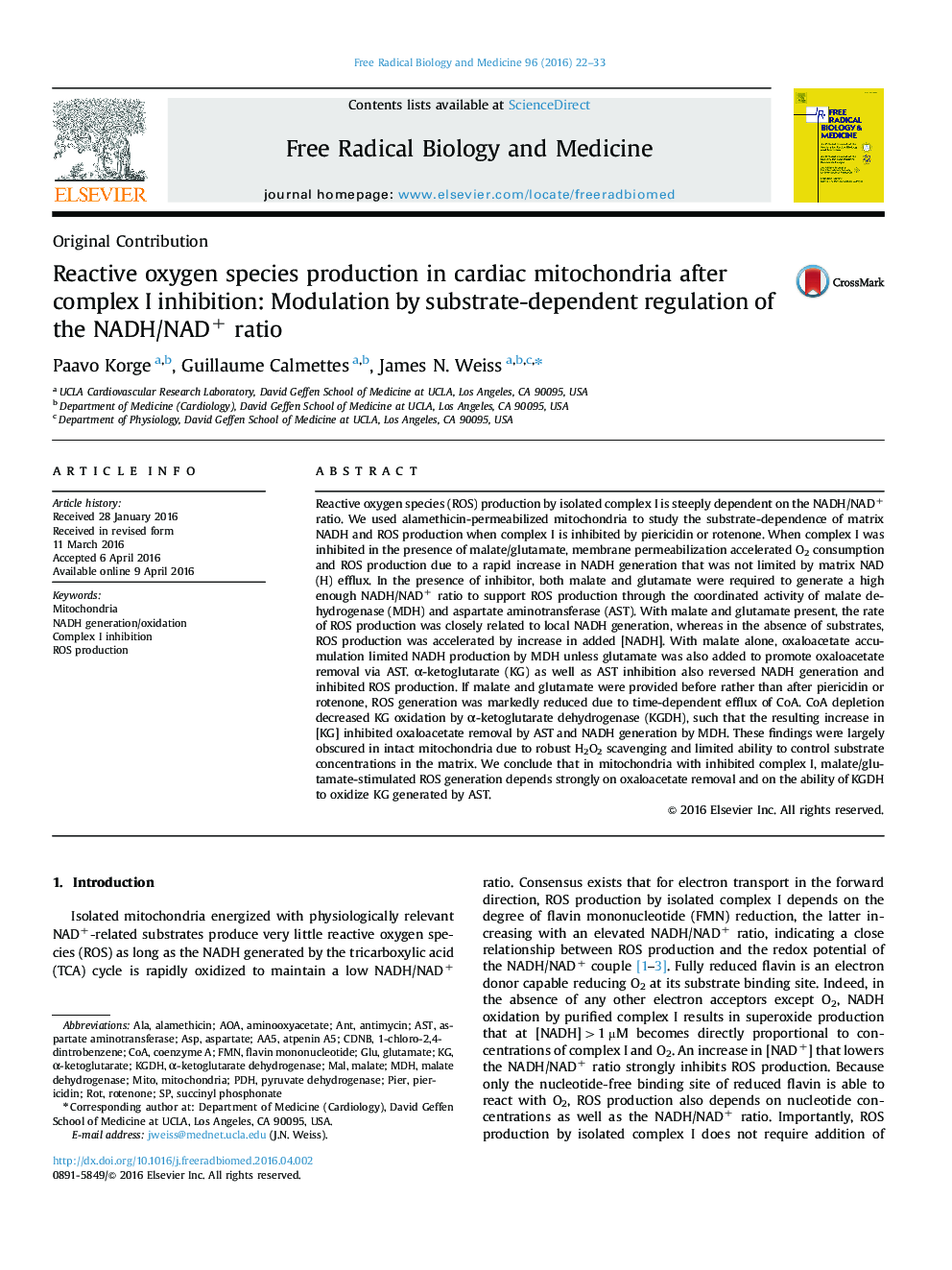| کد مقاله | کد نشریه | سال انتشار | مقاله انگلیسی | نسخه تمام متن |
|---|---|---|---|---|
| 8267634 | 1534947 | 2016 | 12 صفحه PDF | دانلود رایگان |
عنوان انگلیسی مقاله ISI
Reactive oxygen species production in cardiac mitochondria after complex I inhibition: Modulation by substrate-dependent regulation of the NADH/NAD+ ratio
دانلود مقاله + سفارش ترجمه
دانلود مقاله ISI انگلیسی
رایگان برای ایرانیان
کلمات کلیدی
موضوعات مرتبط
علوم زیستی و بیوفناوری
بیوشیمی، ژنتیک و زیست شناسی مولکولی
سالمندی
پیش نمایش صفحه اول مقاله

چکیده انگلیسی
Reactive oxygen species (ROS) production by isolated complex I is steeply dependent on the NADH/NAD+ ratio. We used alamethicin-permeabilized mitochondria to study the substrate-dependence of matrix NADH and ROS production when complex I is inhibited by piericidin or rotenone. When complex I was inhibited in the presence of malate/glutamate, membrane permeabilization accelerated O2 consumption and ROS production due to a rapid increase in NADH generation that was not limited by matrix NAD(H) efflux. In the presence of inhibitor, both malate and glutamate were required to generate a high enough NADH/NAD+ ratio to support ROS production through the coordinated activity of malate dehydrogenase (MDH) and aspartate aminotransferase (AST). With malate and glutamate present, the rate of ROS production was closely related to local NADH generation, whereas in the absence of substrates, ROS production was accelerated by increase in added [NADH]. With malate alone, oxaloacetate accumulation limited NADH production by MDH unless glutamate was also added to promote oxaloacetate removal via AST. α-ketoglutarate (KG) as well as AST inhibition also reversed NADH generation and inhibited ROS production. If malate and glutamate were provided before rather than after piericidin or rotenone, ROS generation was markedly reduced due to time-dependent efflux of CoA. CoA depletion decreased KG oxidation by α-ketoglutarate dehydrogenase (KGDH), such that the resulting increase in [KG] inhibited oxaloacetate removal by AST and NADH generation by MDH. These findings were largely obscured in intact mitochondria due to robust H2O2 scavenging and limited ability to control substrate concentrations in the matrix. We conclude that in mitochondria with inhibited complex I, malate/glutamate-stimulated ROS generation depends strongly on oxaloacetate removal and on the ability of KGDH to oxidize KG generated by AST.
ناشر
Database: Elsevier - ScienceDirect (ساینس دایرکت)
Journal: Free Radical Biology and Medicine - Volume 96, July 2016, Pages 22-33
Journal: Free Radical Biology and Medicine - Volume 96, July 2016, Pages 22-33
نویسندگان
Paavo Korge, Guillaume Calmettes, James N. Weiss,